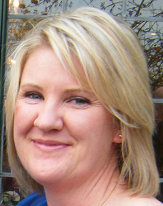The project facilitates participatory design of Mixed Farming and Agroforestry Systems (MiFAS) supporting environmental and climate change mitigation and adaptation potential while addressing technical, agronomic and socio-economic challenges. Therefore, at the heart of MIXED is a multi-actor approach working with networks of farmers and other stakeholders in 10 countries.
Together with networks of farmers, the project identifies and investigates a variety of bottlenecks– related to MiFAS on-farm, in landscapes and value chains - and potential solutions that can contribute to sufficient and stable income, ecosystem services and climate mitigation.
The project follows a three-step process:
- first identifying problems that have been faced and solved by the network members;
- secondly problems that still exist for the network members but have been addressed and/or solved by other networks within the project, and
- finally 'new' problems that have not yet been addressed in other contexts. The work to address specific identified challenges (e.g. technical, environmental, labour and gender issues) takes place through a range of field workshops, cross network reflection workshops and small action projects within the networks.
The project will prepare:
Scientific publications:
Bucking the trend: Crop farmers' motivations for reintegrating livestock
Authors: Clémentine Meunier, Guillaume Martin, Cécile Barnaud, Julie Ryschawy
Published in: Agricultural Systems, Volume 214, February 2024
In cases in which an overlap of challenges faced by the participating networks was found, the Reflective Learning Methodology proved to be a powerful tool for knowledge co-creation. The lessons learned from the MIXED experience of the Reflective Learning Methodology do not challenge the value of the methodology, but rather identify some limitations:
- ☘️ Researchers intending to apply the Reflective Learning Methodology in multi-actor projects should carefully consider whether their units of study are sufficiently homogenous for the methodology to produce useful interactions. The sufficiency of homogeneity is, however, subjective, so it will depend upon a judgement call of the research team designing a project whether Moschitz and Home’s (2014) reflective learning methodology is an appropriate instrument to encourage co-learning and co-creation of knowledge.
- ☘️ The results of work package 1 internal evaluations suggest that establishing engagement and motivation with participating networks early on, and then maintaining this throughout the project duration is essential for the success of the methodological approach used. One of the barriers to engagement at the beginning of the project was unfamiliarity of the researchers with the methodology and inexperience with facilitation. For this reason, a useful early step is to conduct training in facilitation, which can be supplemented by applying participatory methodologies during the reflection workshops: thereby giving researchers direct experience of using methods similar to those they will apply in the field workshops.
- ☘️ We recommend building exchange visits into the project design (and budget), including on farm experimentation at the network level, and establishing exchanges towards real and practical challenges as early as possible. With these activities in place, the methodology has the potential to encourage co-creation of knowledge: even in multi-stakeholder projects with very different cases.
